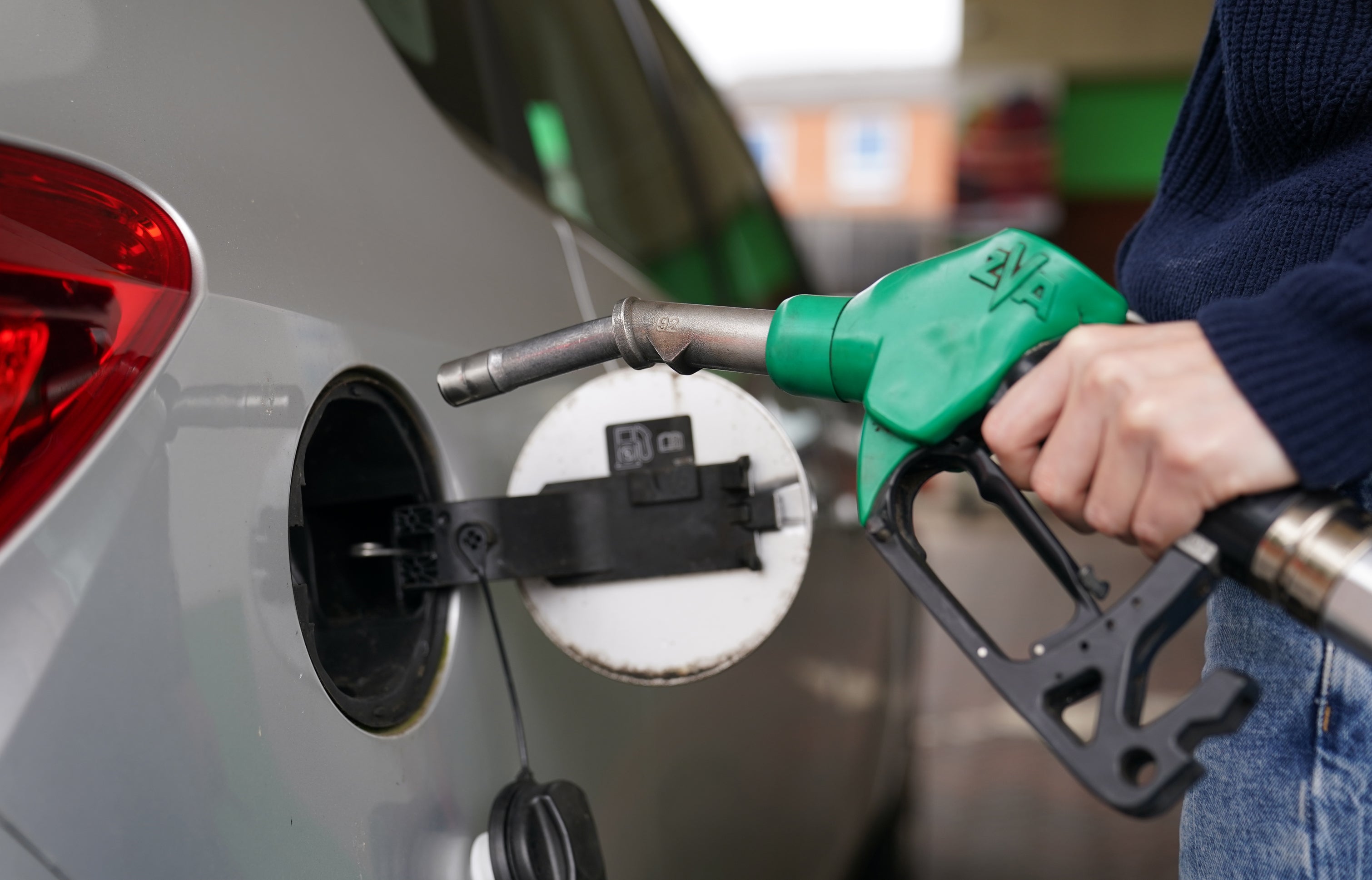Cost of a full tank of petrol hits £100
Figures from data firm Experian show the average price of a litre of petrol at UK forecourts reached a record 182.3p on Wednesday.

Your support helps us to tell the story
This election is still a dead heat, according to most polls. In a fight with such wafer-thin margins, we need reporters on the ground talking to the people Trump and Harris are courting. Your support allows us to keep sending journalists to the story.
The Independent is trusted by 27 million Americans from across the entire political spectrum every month. Unlike many other quality news outlets, we choose not to lock you out of our reporting and analysis with paywalls. But quality journalism must still be paid for.
Help us keep bring these critical stories to light. Your support makes all the difference.
The average cost of filling a typical family car with petrol has exceeded £100 for the first time.
Figures from data firm Experian show the average price of a litre of petrol at UK forecourts reached a record 182.3p on Wednesday.
That was an increase of 1.6p compared with Tuesday, taking the average cost of filling a 55-litre family car to £100.27.
The average price of a litre of diesel on Wednesday was 188.1p.
Prime Minister Boris Johnson said he wants the 5p-per-litre cut in fuel duty implemented in March to have “an impact on the pumps”, adding that the Government is watching retailers “very closely”.
RAC fuel spokesman Simon Williams said the average price of petrol crossing the “thoroughly depressing threshold of £100 a tank” meant it was “a truly dark day” for drivers.
He went on: “There’s almost certainly going to be upward inflationary pressure, which is bad news for everybody.
“While fuel prices have been setting new records on a daily basis, households up and down the country may never have expected to see the cost of filling an average-sized family car reach three figures.”
Mr Williams said many people will be hoping for further financial support from the Government as the 5p-per-litre cut in fuel duty “looks paltry” because wholesale petrol costs have increased by five times that amount since it was introduced.
“A further duty cut or a temporary reduction in VAT would go a long way towards helping drivers, especially those on lower incomes who have no choice other than to drive,” he added.
The AA called for a further 10p-per-litre cut in fuel duty and the introduction of a “fuel price stabiliser” which would see the rate lowered when prices rise, and increased when prices drop.
The firm’s president, Edmund King, said: “Enough is enough. The Government must act urgently to reduce the record fuel prices which are crippling the lives of those on lower incomes, rural areas and businesses.
“A fuel price stabiliser is a fair means for the Treasury to help regulate the pump price, but alongside this they need to bring in more fuel price transparency to stop the daily rip-offs at the pumps.
“The £100 tank is not sustainable with the general cost-of-living crisis, so the underlying issues need to be addressed urgently.”
Answering questions from journalists in Blackpool, Mr Johnson said: “We made a cut already… the biggest cut ever in fuel duty.
“What I want to see is those cuts in taxation not just swallowed up in one gulp, without touching the gullet of the fuel companies, I want to see those cuts having an impact on the pumps.
“And we are watching very closely to see what happens.”
Mr Johnson said many companies “don’t want to just take profit, they do have a sense of responsibility, but we need to see it”.
Downing Street indicated on Wednesday that fuel retailers failing to pass on the 5p duty cut could be named and shamed.
Many forecourts are already selling petrol and diesel above £2 per litre.
Price comparison website PetrolPrices said around 50 sites on UK motorways or major A roads are charging 202.9p per litre.
Pump prices began to soar after Russia’s invasion of Ukraine in February led to oil supply fears.